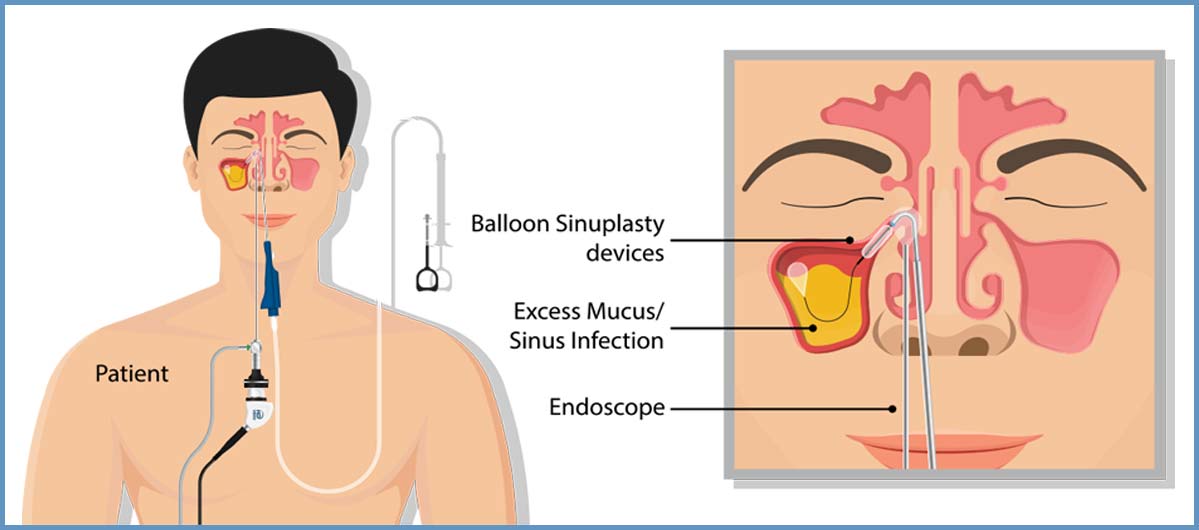What is an Endoscope
An endoscope is a small, thin instrument sometimes with a camera at the end. With endoscopic sinus surgery, your doctor can see inside your sinus cavities without having to make any incisions. When Procedure is Used Sinus surgery is most often performed due to chronic sinusitis or inflammation of the sinus cavities. Many people respond to nonsurgical treatments for sinusitis, but some only get relief following surgery.
When Procedure is Used
Sinus surgery is most often performed due to chronic sinusitis or inflammation of the sinus cavities. Many people respond to nonsurgical treatments for sinusitis, but some only get relief following surgery.
During Surgery
You will likely be under general anesthesia for the procedure which will relax your body and allow you to sleep. Using a small camera or endoscope, your surgeon will be able to access and see your sinuses through your nose and can use instruments to remove damaged tissue, polyps, and blockages. If you have polyps that need to be removed or have nasal passages that have become deformed, your surgeon can utilize CT images along with endoscopic imagery to access your sinuses more easily. Neither procedure requires incisions, so recovery is fairly quick and painless.
Risks
The risk of complications is very low. However, potential risks might include
- allergic reactions to medications
- bleeding
- tissue damage
- infection
Benefits
- reduction or elimination of sinus infections
- increased airflow and improved breathing ability through the nose
- improved sense of smell
 Endoscopic Sinus Surgery
Endoscopic Sinus Surgery







